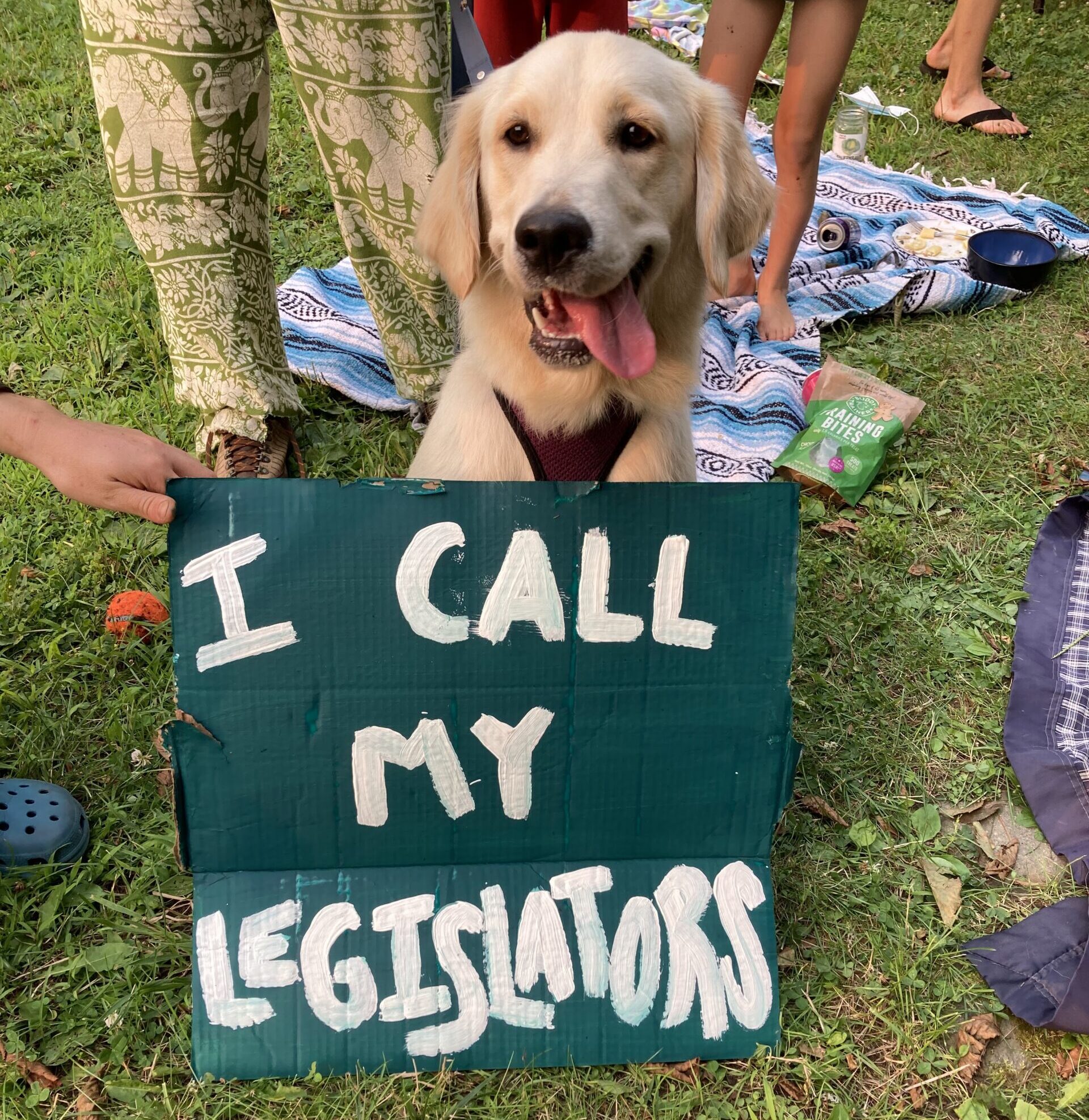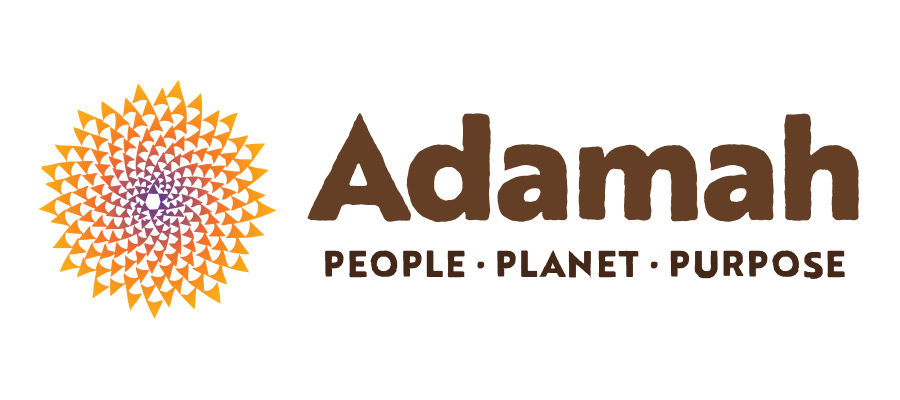Dear Adamah friends,

As the farm director at Isabella Freedman Jewish Retreat Center, I am surrounded daily by the breathtaking and ancient abundance of the land (dozens of potatoes grown from one! sugary sap dripping straight out of a tree trunk!)
At the Adamah fellowship program, we respond as generations before us have. We express our awe and gratitude at each ripening by using the same words our ancestors used to express theirs “שֶׁהֶחֱיָנוּ וְקִיְּמָנוּ וְהִגִּיעָנוּ לַזְּמַן הַזֶּה” (has kept us alive, sustained us, and brought us to this season).

Adamah fellows spent last week in big sun hats and layers of sunscreen, walking up and down rows of growing vegetables laying out water-conserving drip lines to keep crops hydrated in record high temperatures. Farming lays bare the tenderness of our role within larger ecosystems, weather and precipitation patterns, the world.
For this experience too we look to our tradition. How to make sense of ourselves as vulnerable to and partners in the cycles that sustain us?
On a personal level, Jews have always taken seriously the connection between what happens in farm fields and what is ethically and spiritually fit- kosher (כָּשֵׁר)– to put into our bodies. We have also always thought on a systems level with respect to farming and our broader society. Growing up in a suburb, my Jewish education gave me the barest familiarity with Jewish agricultural wisdom. It wasn’t until years later, after learning to coax a whole head of lettuce out of a tiny diamond shaped seed and other secrets revealed by my farming career, that I recognized the commonality between the biblical practice of laying land fallow- shmita ( שְׁמִטָּֽה)– and the modern movement to farm more regeneratively with cover crops for soil health, or of leaving the corners of one’s fields for those in need- pe’ah (פֵּאָה)- and today’s hunger safety net. It is deeply Jewish to take a systems approach to feeding ourselves well and for the long term.

That is why Adamah continues to build on our long legacy of engaging in Farm Bill advocacy. A huge piece of legislation that is currently up for reauthorization, the Farm Bill shapes what food we fill our tables with and how it is grown. With programs relating to climate, hunger, water conservation and pollution, equity across our food system, local food availability, forestry, research, and inflation, the Farm Bill presents a powerful opportunity to invest in a more just and resilient modern food system.
In partnership with the National Sustainable Agriculture Coalition, an alliance of grassroots organizations of which we are a member, Adamah has honed priorities for 2024 Farm Bill advocacy including conservation incentives for farmers to mitigate and adapt to climate change, nutrition funding, sustainable agriculture research, justice initiatives, and food safety net reform. Join us by learning more and taking action!

Farming in a heat wave is exhausting. And yet, under the care and attention of young Jewish farmers, cabbage leaves are folding over one another to make beautiful heads and tiny tomatoes are forming below bright yellow flowers as you read these words.
Farmers and eaters alike are confronted with the big question of what to do with these two experiences – the wonder at our luck to be on such a bountiful planet and the awareness that our ways of relating to the land have big consequences.

Between rows of carrots, with the music of hens clucking, with the hope of gentle rain clouds forming in the distance, we bear daily witness to stark realities on the farm, and we choose to take action in joyous community rather than be stilled by overwhelm. Join us.
Best,
Janna

Janna Siller
Farm Director and Advocacy Coordinator



What’s happening right now with the Farm Bill?
The Farm Bill is overdue for reauthorization. Congress passed an extension in the fall of 2023 that is keeping the country’s farm safety net and hunger relief programs functional, but we need a new bill.
The House Agriculture Committee and the Senate Agriculture Committee each have very different visions for the 2024 Farm Bill. The house draft, which passed a committee vote, threatens climate-smart farming provisions that were hard-won in the 2022 Inflation Reduction Act (IRA)), making funding vulnerable to reallocation. It also weakens critical nutrition programs and encourages consolidation in the food system rather than investing in a more diverse network of farms.
The Senate proposal, however, protects IRA climate funding, strengthens access to the farm safety net for a more diverse set of farms, invests in local and regional food systems, protects nutrition assistance, and takes meaningful steps toward a more racially just food and farm system.
We at Adamah know from our partnerships with research and advocacy groups how important the climate, food systems, and equity solutions in the Senate’s version of the bill are. We also know it from our own experience on our farms in Connecticut and Maryland, both of which use Farm Bill funding for innovative, ecologically in-tune practices like reforesting with carbon sequestering nut trees, or rotating crop fields with prairie plants that provide nectar for pollinators, prevent erosion, reduce fertilizer needs, and increase soil health. There are good programs out there that work. We need a Farm Bill that invests in solutions.
More from the Adamah Farm
